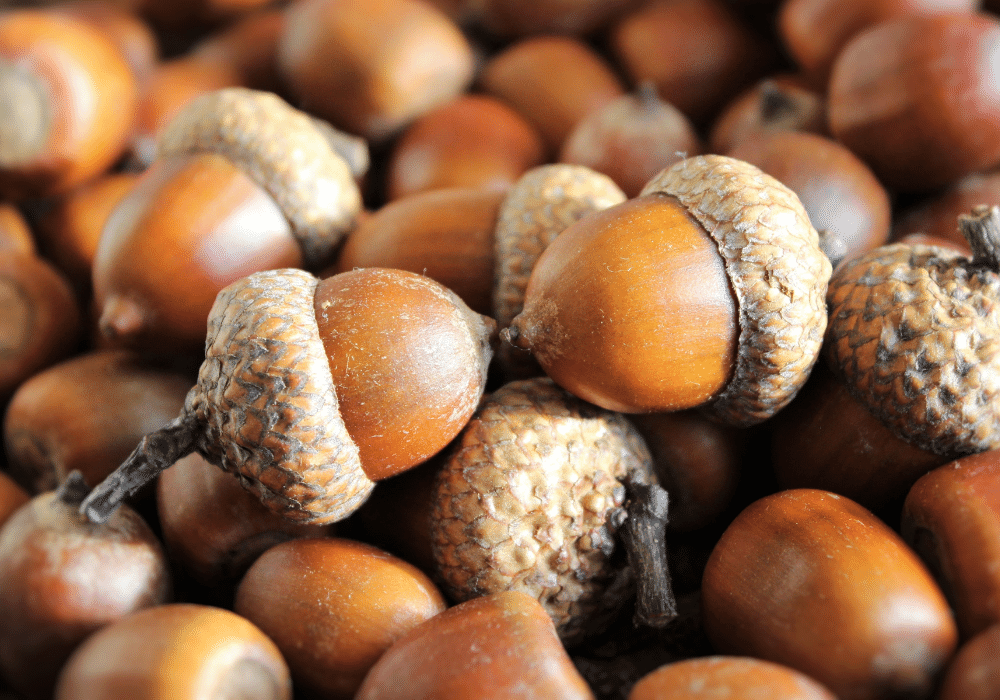As the weather turns colder and autumn returns, acorns begin to fall. Acorns, as well as leaves and branches from oak trees, contain tannic acid. Tannins are toxic and cause serious illness when eaten by horses. Whilst some horses are more susceptible to acorn poisoning than others, steps should always be taken to minimise the chance of horses and ponies consuming acorns, oak leaves and oak branches. This blog article outlines the symptoms of acorn poisoning and what you can do reduce the likelihood of acorn poisoning.
Are Acorns Poisonous to Horses and What Increases the Risk of Poisoning?
Some horses and ponies are naturally more susceptible, so a small amount of acorns is enough to make them ill. Others are less susceptible, but owners should remain vigilant and still take steps to minimise acorn consumption.
Poor grazing can make horses more likely to eat acorns, as can an increase in the amount of acorns on the ground. Strong winds or storms can cause lots of acorns, leaves and branches to fall into the field at once, and this makes it more likely that the horses will eat them.
Acorns, oak leaves and branches taste bitter and this should deter most horses and ponies from eating a lot of them. However, some horses seem to have developed a taste for acorns akin to an addiction and will actively seek them out. In these cases, extra care should be taken to stop them from having access to acorns.
How to Reduce the Risk of Acorn Poisoning
Ideally, you should avoid using any fields where acorns are present until they have been raked up and disposed of. However, you could also use electric fencing to fence of the area around the oak trees to stop the horses gaining access to the acorns.
What Are the Signs of Acorn Poisoning in Horses?
Horses may consume some acorns and not actually be poisoned. However, it is important to know the signs of acorn poisoning, especially if you know your horse has had access to acorns.
Signs of acorn poisoning include:
- Presence of acorn husks in the horse’s droppings
- Depression or lethargy
- Reduced appetite
- Colic or symptoms of colic
- Dehydration
- Mouth ulcers
- Constipation
- Diarrhoea containing blood
What to do in the event of Acorn Poisoning
Like any kind of poisoning, early intervention is key to a positive outcome. If you suspect acorn poisoning, call your vet immediately. Try to assess how many acorns your horse may have eaten and make a note of the symptoms. Whilst there is no specific treatment for acorn poisoning, intravenous fluids may be given to help flush out the toxins, and drugs may be administered to protect the intestines and manage pain.
Avonvale Equine | Independent Emergency Vets
Avonvale Equine Vet Practice are proud to be an independent equine vet practice. We provide year-round, 24/7 emergency equine vet services, always carried out by one of our own vets. Our clients benefit enormously from having our equine vets available for emergency call outs no matter the time of night or day. Register your horse, pony, donkey or mule with us today.








